-
In China, corruption blamed for collapse of bridges
Since 2011 eight bridges have collapsed in China, according to the state run media, including the Yangmingtan Bridge in the city of Harbin last November; the bridge was almost 10-mile long and construction was originally estimated to take three years, but workers finished it in half the time; when the bridge collapsed, the first thing on people’s mind was corruption
-
-
Earthquake hazards map contains deadly flaws

Three of the largest and deadliest earthquakes in recent history occurred where earthquake hazard maps did not predict massive quakes; scientists recently studied the reasons for the maps’ failure to forecast these quakes, and explored ways to improve the maps
-
-
As Hurricane Isaac beats on New Orleans, new infrastructure is holding up
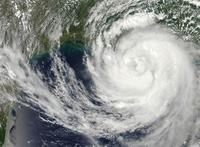
This week, as Hurricane Isaac was threatening to replicate the physical damage that Katrina inflicted, it has become apparent that $14 billion worth of changes and improvements in infrastructure, planning, and emergency response procedures have given the city of New Orleans and the Gulf states the ability to withstand the worst of the storm
-
-
Isaac leaves flooding, power outages in its path
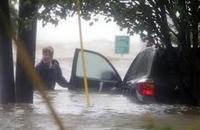
Hurricane Isaac lost its Category 1 hurricane status midday Wednesday and was downgraded to a tropical storm, but the severe rains and winds which it brought with it have not let up much; the number of power outages continues to increase as the number of homes and businesses without electricity is now up to 834,000 between Louisiana, Mississippi, Alabama, Florida, Texas, and Arkansas, with over one-third of the outages in Louisiana alone
-
-
NSF awards Norwich University a grant for computer security scholarships
Norwich University in Vermont was awarded a $975,000 grant from the National Science Foundation’s (NSF) Scholarship for Service program; the funds will be used to support Information Assurance students; the students will fulfill the “service” obligation through employment by a government agency in their area of information assurance expertise for two years
-
-
Evaluating fresh water sustainability in the southern U.S.
Researchers have embarked on 4-year federal research effort to evaluate freshwater sustainability across the southern United States and develop policy recommendations on what can be done to make the best use of water supplies in the face of population growth and the effects of climate change over the next ten to thirty years
-
-
Hurricane Isaac downgraded from Category 1 hurricane to tropical storm

Hurricane Isaac was downgraded from a category 1 hurricane to a tropical storm. The storms winds have dropped below 70 mph, but the storm is moving very slowly throughout the gulf area at about 6 mph; at this point officials estimate that Isaac is expected to cause $1.5 billion in insured losses
-
-
New Jersey infrastructure badly needs shoring up, and soon
According to experts, changes to the way New Jersey maintains its infrastructure must be made soon, or the state could be vulnerable to catastrophic failures in its water and power systems as well as collapsing roads; the North Jersey Transportation Planning Authority says more than $56.9 billion will be needed just to maintain state roads, rails, and public transportation systems through 2035; when you add in improvements to account for environmental changes and the expanding population in the state, the bill skyrockets to more than $123 billion
-
-
Japan awards tsunami buoy contract to SAIC
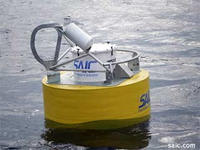
The Japan Meteorological Agency (JMA) in Tokyo, Japan, has awarded (SAIC) a contract for the production and delivery of six SAIC Tsunami Buoy (STB) systems; the STB systems will be deployed at locations in the northwest Pacific Ocean approximately 200 nautical miles east of Sendai, Japan
-
-
Activists in arms over plans to ship plutonium to New Mexico
A proposal to ship tons of plutonium to New Mexico, including cores of nuclear warheads which would be dismantled at a structurally questionable lab on top of an earthquake fault zone, has activists and nuclear watchdogs up in arms
-
-
U.S. always ends up regulating new technologies for public safety; the Internet is no exception
Homeland Security News Wire’s executive editor Derek Major talked with CSIS’s James Lewis about the cybersecurity challenges the United States faces, Stuxnet, China’s hacking campaign, cyber arms control efforts, and more; on the stalled cybersecurity bill, opposed by critical infrastructure operators as being too burdensome, Lewis says: “It takes America about 20-40 years to come to terms with a new technology, but we always end up regulating it for public safety. This will be no different. We are in year 17.”
-
-
Tampa Bay’s infrastructure receives C grade – some say it is a gentleman’s C
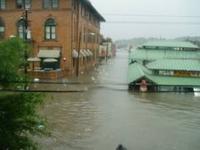
All eyes are Tamp Bay as it anxiously awaits the full brunt of tropical storm Isaac; long-time residents of the city and the neighboring counties will not be happy to learn that the city has been given a C grade for its infrastructure; engineer Kathy Caldwell, past president of the American Society of Civil Engineers, who teaches at the University of Florida, said: “None of us would expect our children to come home with the reports cards that we gave the region’s infrastructure”
-
-
Cooling coal emissions would clean air, lower health, climate-change costs
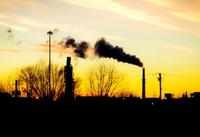
In the United States there are about 1,400 electric-generating unit powered by coal, operated at about 600 power plants; the estimated health costs of burning coal in the United States are in the range of $150 billion to $380 billion, including 18,000-46,000 premature deaths, 540,000 asthma attacks, 13,000 emergency room visits, and two million missed work or school days each year; scientists estimate that implementing large-scale cryogenic systems into coal-fired plants would reduce overall costs to society by 38 percent through the sharp reduction of associated health-care and climate-change costs
-
-
Siemens software which controls power plants vulnerable to hackers
RuggedCom is a Canadian subsidiary of Siemenswhich sells networking equipment for use in harsh environments with extreme and inclement weather; many critical infrastructure operators of power plants, water systems, dams, and more; a security specialist discovered a flaw in the software, a flaw which allows hackers to spy on communication of infrastructure operators and gain credentials to access computer systems which control power plants as well as other critical systems
-
-
Maldives to build floating islands to save country from rising sea levels
The Maldives Islands, a low-lying chain of twenty-six atolls in the Indian Ocean, are sinking; more precisely: due to global warming, the sea level is rising over the islands, most of which sit lower than three feet above the rising water; the Maldives government has embarked on an ambitious project: build floating islands, anchor them to the ocean floor, then relocate most of the population of 300,000 – and some of the tourist attractions – to them
-
- All
- Regional
- Water
- Biometrics
- Borders/Immig
- Business
- Cybersecurity
- Detection
- Disasters
- Government
- Infrastructure
- International
- Public health
- Public Safety
- Communication interoperabillity
- Emergency services
- Emergency medical services
- Fire
- First response
- IEDs
- Law Enforcement
- Law Enforcement Technology
- Military technology
- Nonlethal weapons
- Nuclear weapons
- Personal protection equipment
- Police
- Notification /alert systems
- Situational awareness
- Weapons systems
- Sci-Tech
- Sector Reports
- Surveillance
- Transportation
Advertising & Marketing: advertise@newswirepubs.com
Editorial: editor@newswirepubs.com
General: info@newswirepubs.com
2010-2011 © News Wire Publications, LLC News Wire Publications, LLC
220 Old Country Road | Suite 200 | Mineola | New York | 11501
Permissions and Policies
Editorial: editor@newswirepubs.com
General: info@newswirepubs.com
2010-2011 © News Wire Publications, LLC News Wire Publications, LLC
220 Old Country Road | Suite 200 | Mineola | New York | 11501
Permissions and Policies
